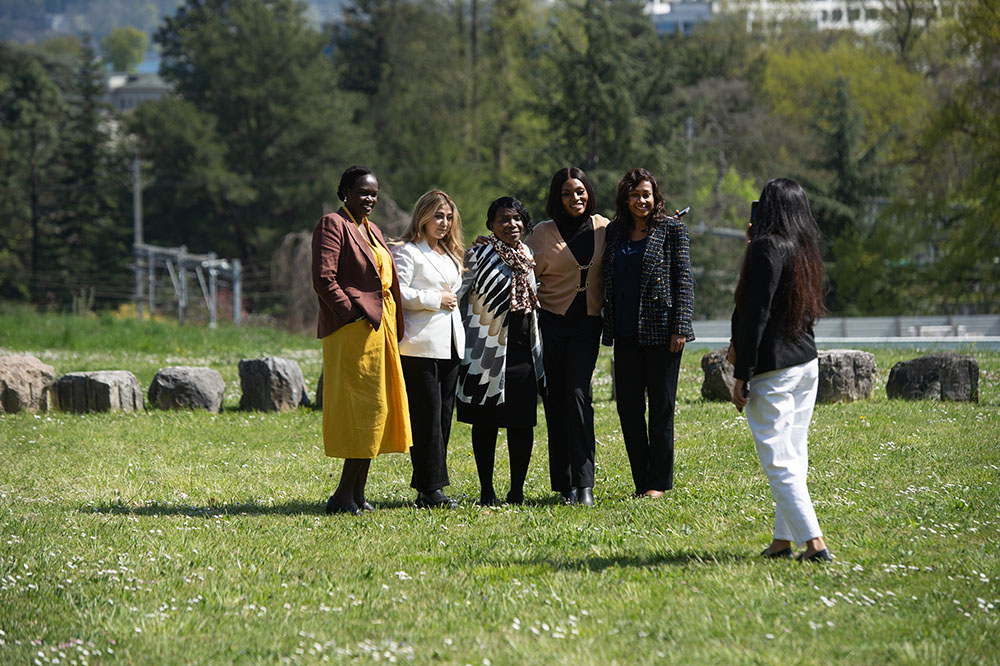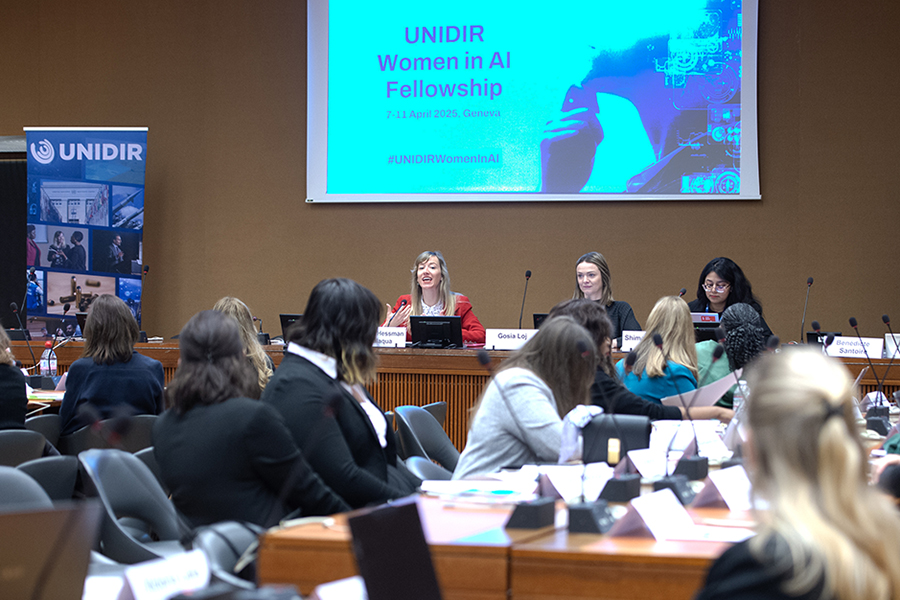UNIDIR recently concluded the 2025 edition of its Women in AI Fellowship, which brought together 33 women diplomats from 32 countries for a week-long training in Geneva, Switzerland.
The programme equipped this year’s Women in AI Fellows with vital knowledge and resources related to AI, particularly on technical, legal, governance and ethical issues within the field of international peace and security.
AI from every angle
Through a mix of lecture-style and activity-oriented sessions, the fellows learnt about various facets of AI, including the workings of the technology itself, military applications like lethal autonomous weapons systems, and means of promoting a multistakeholder perspective on AI governance in multilateral settings.
These conversations were also placed in the broader context of AI in the international defence architecture, strategic foresight around its use, and potential impacts of emerging technologies like quantum, whose importance is only likely to grow in future policy discussions. The fellows were encouraged to brainstorm and critically analyse ideas around who should be responsible for AI governance, as well as where and how.
The fellowship also brought participants into contact with a plethora of experts, whether from UNIDIR, intergovernmental organizations, academic institutions, big tech companies or humanitarian organizations. Fellows were able to dissect a Netflix documentary on “killer robots” and to discuss questions around gender, security and AI with UN Under-Secretary General and High Representative for Disarmament Affairs Izumi Nakamitsu.
The sessions also covered the broad spectrum of UNIDIR’s work on AI, including the Global Conference on AI, Security and Ethics, digital tools like the AI Policy Portal, and research on the cyber-AI nexus, military AI governance processes, and the intersection of gender and AI.

In addition to regular sessions, the fellowship included networking and immersive learning opportunities. This year’s participants were able to enjoy a lunch with a number of 2024 Women in AI Fellows and a dinner with the diplomatic community in Geneva, both of which encouraged engagement, networking and exchanges across similar communities of practice.
The final day included a visit to the CERN Science Gateway on the Franco-Swiss border, where Fellows took a guided walking tour of the premises, learnt about emerging technologies in use at CERN and had the chance to witness up close the functioning of a successful, science and technology-focused organization born out of international cooperation.
Learning from our Women in AI Fellows
In feedback sessions, fellows shared their appreciation for the general diversity of the fellowship. This was true in terms not only of the range of geographies and experiences represented but also the variety of topics covered, many of which they expect to encounter again in their ongoing work as diplomats and policymakers.
Fellows also underlined the importance of this programme as a means of addressing real knowledge gaps that result from a dual lack of technical capacity and representation, especially in regions of the world where AI is still in the early stages of its development and use.
Since peer-learning and mutual support can also be of great help here, fellows particularly appreciated one final aspect of the programme: the chance to make informal connections and build networks with other women diplomats working on related issues around the world.
Within the policy community, there is consistent and growing interest both in AI and in the UNIDIR Women in AI Fellowship, with applications more than doubling for the 2025 edition. UNIDIR is committed to channelling this growing interest into positive change in the coming years through future editions of the Women in AI Fellowship and its wider offering of capacity-building initiatives in key areas of global security.
The 2025 Women in AI Fellowship was made possible by the generous support of donors to UNIDIR’s Gender and Disarmament Programe and Security and Technology Programme, specifically Canada, Czechia, France, Germany, Ireland, Italy, Malta, the Netherlands, Norway, Republic of Korea and Switzerland. UNIDIR would also like to express its gratitude to Australia and the United Kingdom for dedicated funding for the 2025 Women in AI Fellowship.
